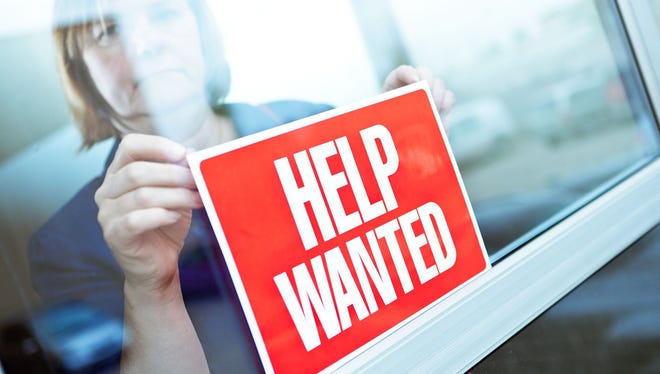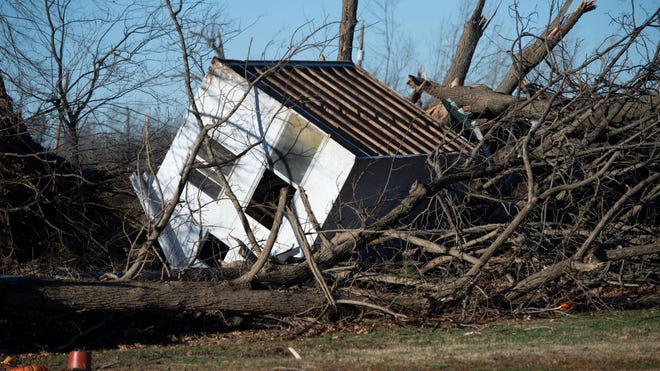
- 559,000 jobs added to the economy in May, according to latest US jobs report.
- The unemployment rate fell from 6.1% to 5.8%.
- Oxford Economics expects the economy to add a record 8 million jobs in 2021 as unemployment falls to 4.3% by the end of the year.
Hiring picked up in May as employers added 559,000 jobs amid falling COVID-19 cases, a loosening of business constraints and stepped-up vaccinations, more than offsetting persistent worker shortages.
The unemployment rate fell sharply from 6.1% to 5.8%, the Labor Department said Friday.
The labor shortages continued to temper hiring. Economists surveyed by Bloomberg had estimated that 674,000 jobs were added last month.
Leisure and hospitality, the sector hit hardest by the pandemic, again led the payroll recovery, adding 292,000 jobs as restaurants and bars rehired laid-off workers. Public and private education added 144,000 jobs as many schools resumed in-person classes.
But the employment gains were broad-based. Healthcare and social assistance added 46,000 jobs; professional and business services, 35,000; and transportation and warehousing, 23,000.
So far, the U.S. has recovered 14.7 million, or 65%, of the 22.4 million jobs lost last spring, leaving the nation 7.6 million jobs below its pre-pandemic level.

Worker shortages impact economy
The labor market is grappling with opposing forces. COVID cases recently fell to a seven-day average of about 17,000, lowest since March 2020. Forty-one percent of the U.S. population has been fully vaccinated. And life is returning to normal, with many states lifting nearly all pandemic-related restrictions.
As a result, consumer demand is surging back as Americans resume activities like traveling and dining out. Restaurant seatings on OpenTable, an online reservation service, were 17% below 2019 levels one week in May, compared to a 35% gap in a comparable April week and the strongest showing since the early days of the pandemic, according to Goldman Sachs.
But businesses of all stripes can’t find enough workers to meet the demand, a shortcoming deemed the chief culprit in April’s disappointing job gains. Many economists pointed to a federal bonus in unemployment benefits that may be discouraging some people from returning to work or taking new jobs. Other workers are still fearful of contracting COVID or are taking care of kids who are remote learning.
Those obstacles continued to hinder hiring last month. The labor force -- the number of Americans working and looking for jobs -- unexpectedly fell by 53,000. Job openings hit a record 8.1 million in March. But an unprecedented 44% of small businesses say they can't fill their openings, according to the National Federation of Independent Business.
As a result, average monthly payroll gains of 418,000 the past two months are less than half the 1 million many economists predicted.
"Labor supply is bouncing back much more slowly than demand," economist Paul Ashworth of Capital Economics wrote in a note to clients.
"Given these challenges, hiring could take longer to ramp up than initially expected, with more growth coming in the fall," says economist Leslie Preston of TD Economics.
Job growth could hit record in 2021
The hurdles should diminish in the coming months. Half the states have said they’ll cut off the enhanced jobless benefits starting in June while the others will let them run out by law in September. And a growing number of schools have reopened or announced plans to do so.
Oxford Economics still expects the economy to add 1 million jobs a month over the summer and a record 8 million in 2021 as unemployment falls to 4.3% by the end of the year.
Last month, the number of Americans on temporary layoff fell by 291,000 to 1.8 million as many restaurants and other business brought back furloughed workers. The figure is down from 18 million in the early days of the pandemic. About 20% of unemployed workers said they were on temporary layoff, down slightly from the previous month. That means many workers could still be brought back to their old jobs.
The ranks of Americans permanently laid off fell by 295,000 to 3.2 million. Even more encouraging, the number of people unemployed six months or longer fell by 431,000 to a still elevated 3.8 million-- the second largest decline on record. That suggests employers struggling to find workers are hiring the long-term unemployed, a development that could limit the pandemic's long-term economic damage if it continues. Traditionally, many companies have been reluctant to bring on the chronically jobless on concerns that their skills have eroded or that other employers have rejected them
There were other signs that hiring perked up in May. The number of employees working reached the highest level since the start of the pandemic, according to Homebase, which provides employee scheduling software to small businesses. And initial jobless claims, a gauge of layoffs, averaged 505,000 a week last month, down from 656,000 in April, a Goldman Sachs analysis shows.
Even some recent college graduates, who faced especially difficult job searches through most of the pandemic, are finding a more welcoming labor market.
Keeley White, who lives in the Chicago area, graduated a year ago with sociology and graphic design degrees and a 4.0 grade point average. But after three interviews for a job as a consumer experience researcher – who helps businesses create customer-friendly interfaces – a prospective employer told her it was freezing all hiring as the health crisis upended the economy in March 2020.
College grads struggle to find work during COVID
“It was maddening,” says White, 23, noting she felt particularly bad for her immigrant parents who look forward to her becoming the first in her family to graduate from college. “I was absolutely kind of heartbroken.”

Realizing that few firms were hiring, White spent $13,000 of her savings on a 12-week boot camp in user experience research only to face repeated rejection when she graduated in November and sent out 43 applications. She realized she was competing against hundreds of experienced researchers who had been laid off during the crisis.
But after networking tirelessly on sites such as LinkedIn, White received a job offer from American Express in April and started in early May.
“It made all of the struggles worth it,” she says.
Source link









